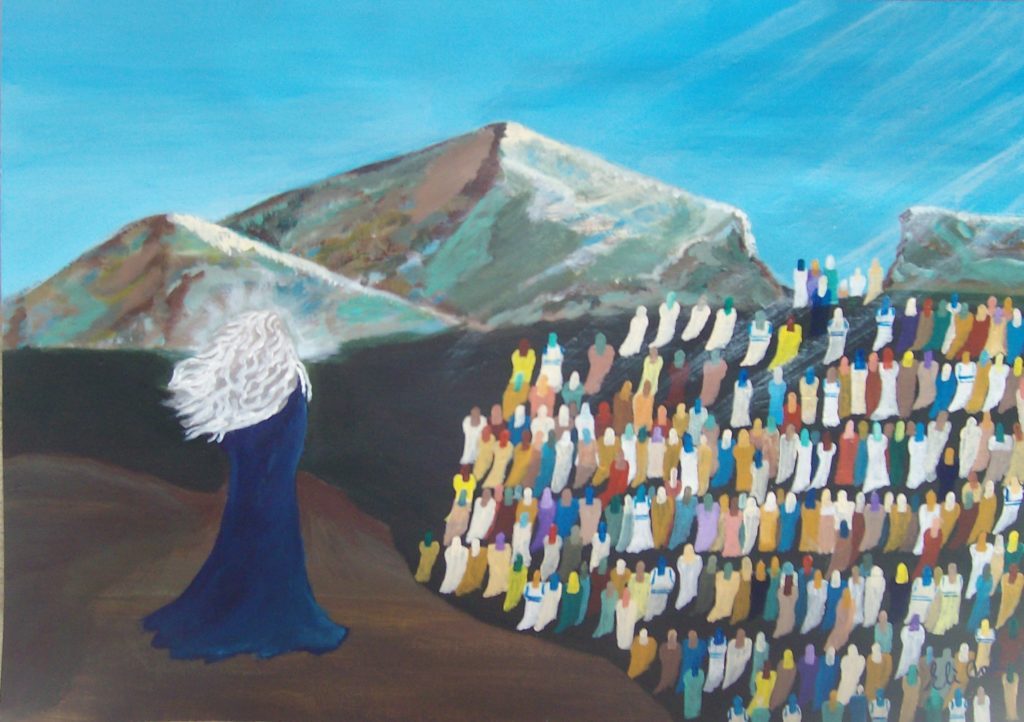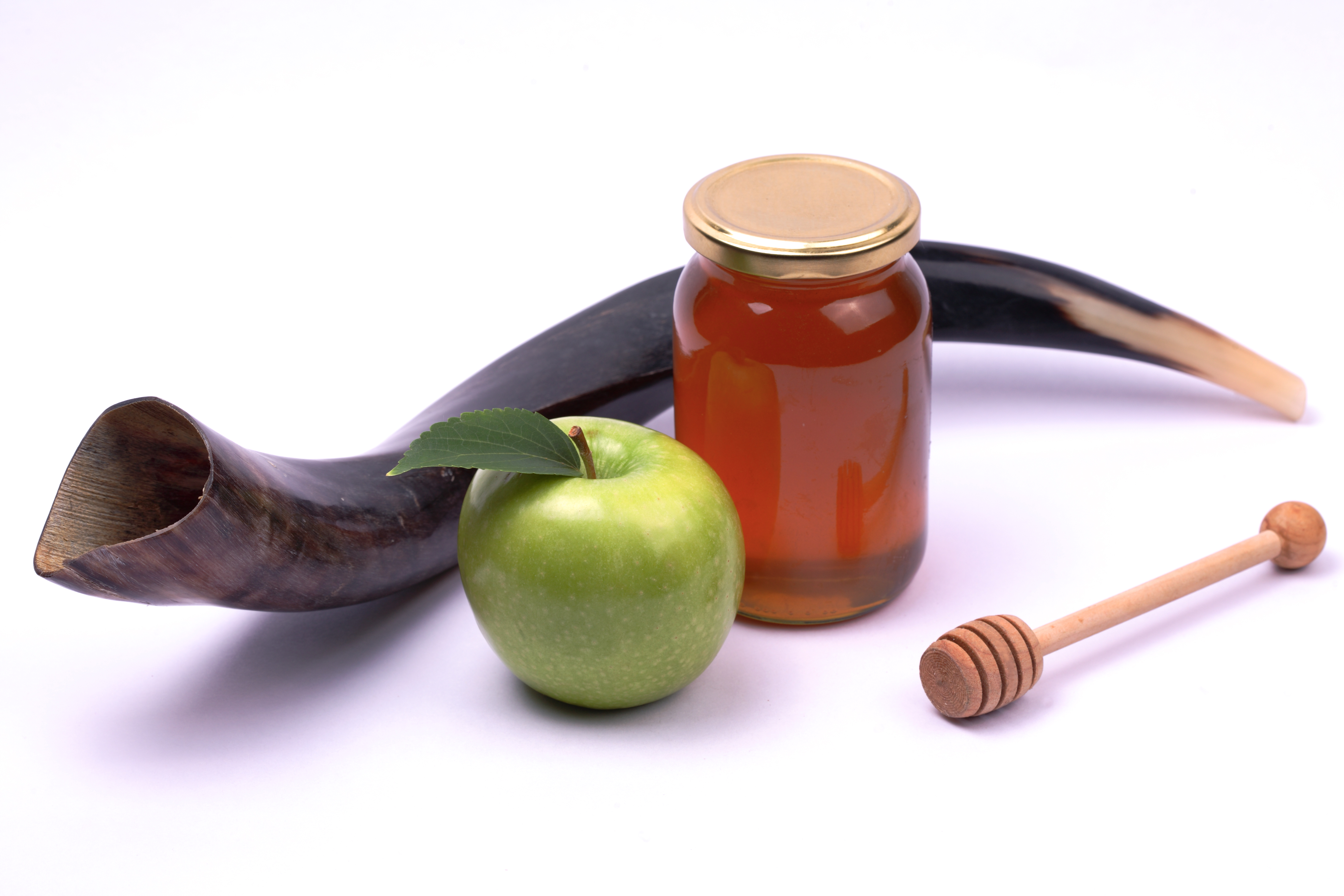Bonjour / Hello [nickname_else_first_name],
Table of contents
1) Perashat Hashavoua - Rabbi Eli Mansour
2) Halakhat Hashavoua (Halakhot related to day to day life)
Laws of Rosh Hashanah - Hazzan David Azerad
3) Holy Jokes!
1)PERASHAT HASHAVOUA
This Week's Parasha Insight with Rabbi Eli Mansour
Rosh Hashana- A Time to Stop Making Excuses
The Torah commands blowing a "Teru’a" sound on Rosh Hashanah ("Yom Teru’a Yiheyeh Lakhem" – Bamidbar 29:1), and the Gemara explains that this refers to a weeping sound.
The Gemara reaches this conclusion on the basis of Targum Onkelos (the ancient Aramaic translation of the Torah), which translates the word "Teru’a" as "Yebaba." This word is derived from the root "Y.B.B.," and the Gemara determines the meaning of this word from a verse in the Book of Shoftim (5:28). The context of that verse is Beneh Yisrael’s victory over the Canaanite army led by the general Sisera, who fled the battlefield and sought refuge in the home of a woman named Yael. As Sisera slept, Yael killed him, sealing Beneh Yisrael’s victory. The verse describes Sisera’s mother waiting by the window and crying – "Va’teyabeb" – as she realized that her beloved son was not returning home. This proves that the word "Teru’a," which is translated as "Yebaba," refers to a crying sound. The Gemara explains that there are different kinds of weeping, which accounts for the different sounds which we blow with the Shofar (the sounds known as "Shebarim," "Teru’a," and "Shebarim-Teru’a").
At first glance, it seems peculiar that Sisera’s mother’s cries form the basis of our understanding of the word "Teru’a." Why would specifically her weeping serve as the model of the sound of the Shofar? What connection is there between Sisera’s mother and Shofar blowing?
The verses there in Shoftim tell that Sisera’s mother and her servants tried finding comfort by suggesting reasons why her son was not returning home. Perhaps he was busy celebrating, or collecting the spoils of war. Not wanting to confront the painful reality that her son had been killed, Sisera’s mother tried in vain to comfort herself by imaginary tales.
People similarly use their creativity to avoid the painful reality that they have acted wrongly. It is exceedingly difficult to admit wrongdoing. In marriage, for example, when a couple has an argument, rarely does one spouse later say to the other, "I realize that I was wrong, I apologize." Admitting error, guilt and wrongdoing is very uncomfortable. And so to avoid this discomfort, we come up with excuses. We think of creative reasons for why we did what we did in an attempt to exonerate ourselves and thereby save ourselves from painful feelings of guilt and embarrassment.
This is one explanation for the connection between Sisera’s mother’s weeping and Rosh Hashanah. Just as Sisera’s mother cried when she stopped making "excuses," when she confronted the painful reality that her son was not returning home, Rosh Hashanah is the time for us to stop making excuses for our behavior, and to confront the painful reality that we need to improve.
In the Book of Yirmiyahu (2:35), G-d tells Beneh Yisrael, "Hineni Nishpat Otach Al Omrech Lo Hatati" – that He would be punishing them for saying, "I did not sin." This is a truly remarkable verse. G-d does not punish us for sinning; as flawed human beings, we are prone to make mistakes, and He does not expect perfection. He punishes us not for our mistakes, but for denying our mistakes. It is all but inevitable that we will commit sins, but we are expected to hold ourselves accountable, to admit our wrongdoing, to humbly acknowledge guilt, and to resolve to try harder.
This concept is taught to us by King Shlomo, in Mishleh (28:13), where he writes, "U’modeh Ve’ozeb Yeruham" – "…but he who confesses and abandons [his wrongdoing] will be given mercy." We are not asked to be perfect; we are asked only to admit our imperfections and try to be better.
I saw an example of this principle during a cab ride to the airport. The driver was pulled over for speeding. When the cop asked him why he was driving so fast, he said, "Look, officer, it’s not my fault, I have a passenger who is late for a flight, I am just trying to do my job…"
The policeman looked at him and said, "Hey, just tell me the truth."
The driver looked down and said, "Ok. I was driving too fast. I was wrong. I am sorry."
The cop politely asked him not to speed again, and let him go without issuing a ticket.
I thought to myself that this is precisely what Hashem wants of us. He is not looking to punish us for our sins. Rather, He wants us to stop making excuses, to take ownership of our mistakes, to be honest with ourselves, to admit that we do things wrong and that we need to try to be better.
This is what the cry of the Shofar is saying to us: to stop making excuses, and to honestly take stock of our actions in order to improve.
2) HALAKHAT HASHAVOUA
Selected & translated by David Azerad, Hazzan Maghen Abraham
The laws of Rosh Hashanah according to the rulings of Rabbi Obadiah Yosef ZT”L
What is Tashlich, and do women also have to do it?
After the prayer of Mincha on the first day of Rosh Hashanah, we have the custom to go to a river or a park or wherever there is running water to recite the Tashlich.
When we say the verse: : "ותשליך במצולות ים כל חטאתם" "And throw all your sins into the depths of the sea", we shake the hem of our clothes towards the water, and say that all our sins, be thrown away. The Minhag of Sefardic women is not to say Tashlich.
Do we recite She’hecheyanu when lighting the candles?
When lighting the candles women should not say She’ehecheyanu , because this blessing is recited afterwards in the Kidush of the holiday.
At the Kiddush on the second night, since there was a Machloket to recite She’echeyanu or not it is good for every person to bring a new fruit on the table at the time of the Kidush,so that the new fruit is exempt as well or wear a new garment. In any case, even if one does not have a fruit or a new garment, he should still say She’ehecheyanu.
Bevirkat Shabbat Shalom Umevorch
David Azerad
3) HOLY JoKeS!!
Selection of funny snippets, loosely related to this weeks parashah, to brighten your day
On the morning of Rosh Hashanah, Rivka [Rebecca] went into the bedroom to
wake her son and tell him it was time to get ready to go to the synagogue
[Shul], to which he replied in a dull voice, 'I'm not going.'
'Why not?' Rivka demanded.
'l'll give you two good reasons Mother,' he said. 'One, they don't like
me, and two, I don't like them.'
Rivaka replied in an exasperated voice, 'I'll give you two good reasons
why you must go to the synagogue. 'One, you're 54 years old, and two, you're
the Rabbi.'
----
The Chauffeur
Ron, a Catholic chauffeur was bragging
to his friend how well the Jewish family who employed him treated him.
'You wouldn't believe it,' he bragged. 'I get tips galore, and they
always buy me lunch or dinner when I drive. My salary is great, with
benefits. I get off all holidays, including the Jewish ones, like Rosh
Hashanah.'
'That sounds pretty good,' said Dave, a friend. 'But what's Rosh Hashanah?'
''Oh, that's when they blow the shofar*,' answers Ron.
'What?' spluttered Dave, 'You call that a benefit.'


Jewish Art from Venice
 <
<










 <
<